7 Compelling Reasons to
Outsource Your Payroll

Payroll isn’t just about writing checks. It’s about:
- Accurately calculating hours, wages, and deductions.
- Filing and paying payroll taxes correctly and on time.
- Keeping up with constantly changing federal, state, and local labor laws.
- Protecting sensitive employee data.
For many business owners, payroll feels like a necessary headache—it eats up valuable time and creates stress, especially if you’re worried about compliance.
That’s why more companies are turning to payroll outsourcing. Instead of managing everything in-house, they rely on payroll professionals who use advanced tools, stay current with regulations, and streamline the entire process.
If you’re wondering whether outsourcing payroll is right for you, here are seven compelling reasons to consider it—explained in detail.
- Save Valuable Time
Running payroll manually requires multiple steps: time tracking, gross-to-net calculations, deductions, preparing checks or deposits, and filing reports.
For a small business with 10–20 employees, payroll can take 5–10 hours every month. That’s over 100 hours a year—time you could be using to develop new services, attract clients, or improve operations.
When you outsource payroll: payroll runs automatically with accurate data entry, reducing admin work to minutes instead of hours.
- Reduce Costly Errors
Payroll mistakes can lead to more than unhappy employees—they can result in:
- IRS penalties for late or incorrect tax filings.
- Interest charges on missed payments.
- Reputational damage if employees aren’t paid correctly or on time.
According to the IRS, nearly 33% of businesses make payroll errors each year, leading to billions in penalties.
When you outsource payroll: payroll providers use specialized software and compliance checks to catch errors before they happen.
- Stay Compliant with Changing Laws
Employment and tax laws change constantly. For example:
- Some states now require mandatory retirement plan deductions.
- The Department of Labor regularly updates overtime rules.
- Multi-state businesses face different wage and tax requirements.
Missing just one update could trigger fines or an audit.
When you outsource payroll: providers monitor legal changes and automatically apply them to your payroll, keeping you compliant without extra effort.
- Enhance Data Security
Payroll involves sensitive information:
- Employee Social Security numbers
- Bank account details
- Salary and benefits records
If stored in spreadsheets or outdated systems, this data can be vulnerable to theft or fraud.
When you outsource payroll: providers invest in secure servers, encryption, and fraud-prevention systems—security measures that would be costly for most small businesses to implement in-house.
- Access Expert Knowledge
Payroll isn’t one-size-fits-all. Questions often arise, like:
- How do we handle payroll for remote employees across multiple states?
- What’s the difference in reporting for W-2 employees vs. 1099 contractors?
- How do benefits like health insurance and retirement contributions impact withholdings?
When you outsource payroll: you gain access to payroll specialists who can answer these questions quickly, ensuring compliance and accuracy.
- Improve Employee Experience
Employees expect to be paid correctly and on time—every time. Mistakes cause frustration and can hurt morale.
When you outsource payroll:
- Direct deposits run seamlessly.
- Employees can access pay stubs and tax forms online.
- HR requests are reduced, since workers can self-serve for basic payroll needs.
Happy employees equal higher retention.
- Scale Your Business with Ease
As your company grows, payroll complexity multiplies:
- More employees mean more withholdings and reports.
- Expanding into other states requires different tax compliance.
- Offering benefits like retirement plans adds deductions and matching contributions.
When you outsource payroll: providers have systems designed to scale. Whether you’re hiring 5 employees or 50, payroll adapts without creating bottlenecks for your internal team.
FAQs About Payroll Outsourcing
No—small and mid-sized companies often see the greatest benefits since they don't have a dedicated HR or finance department.
It varies based on employee count and services, but for most businesses, the savings in time, reduced errors, and compliance protection outweigh the costs.
Not at all. You still approve payroll runs and final payments. The provider simply handles calculations, filings, and compliance behind the scenes.
Most providers manage payroll tax deposits, quarterly filings, and year-end forms like W-2s and 1099s.
Reputable providers use encryption, multi-factor authentication, and strict compliance standards to safeguard sensitive data.
Conclusion
Outsourcing payroll isn’t just about convenience—it’s about making a strategic business decision. You gain:
- More time to focus on growth.
- Stronger compliance with fewer errors.
- Enhanced employee satisfaction.
- A system that grows with your business.
For scaling companies, outsourcing payroll can be the difference between staying stuck in admin tasks and stepping into true growth mode.
Book a free consultation today and see how payroll outsourcing can save you time, reduce risks, and simplify your operations.

